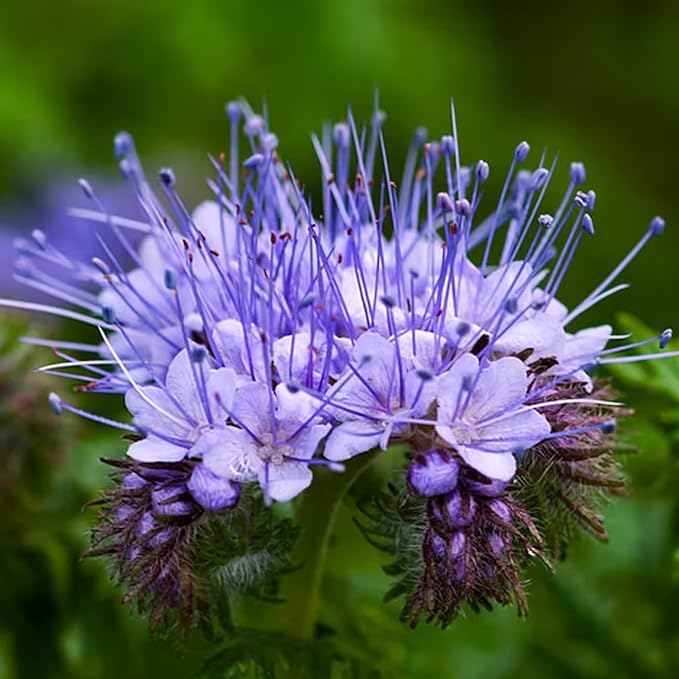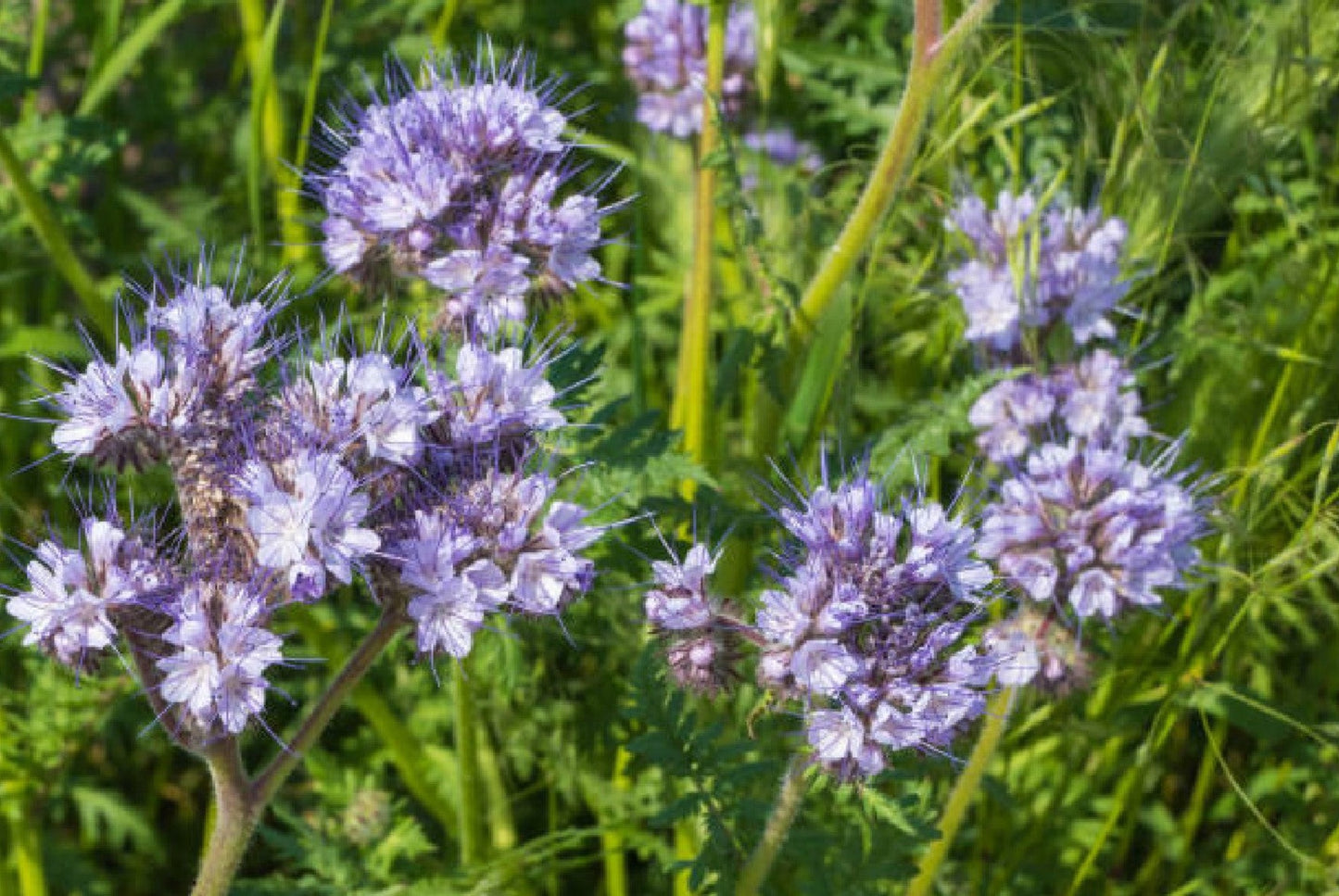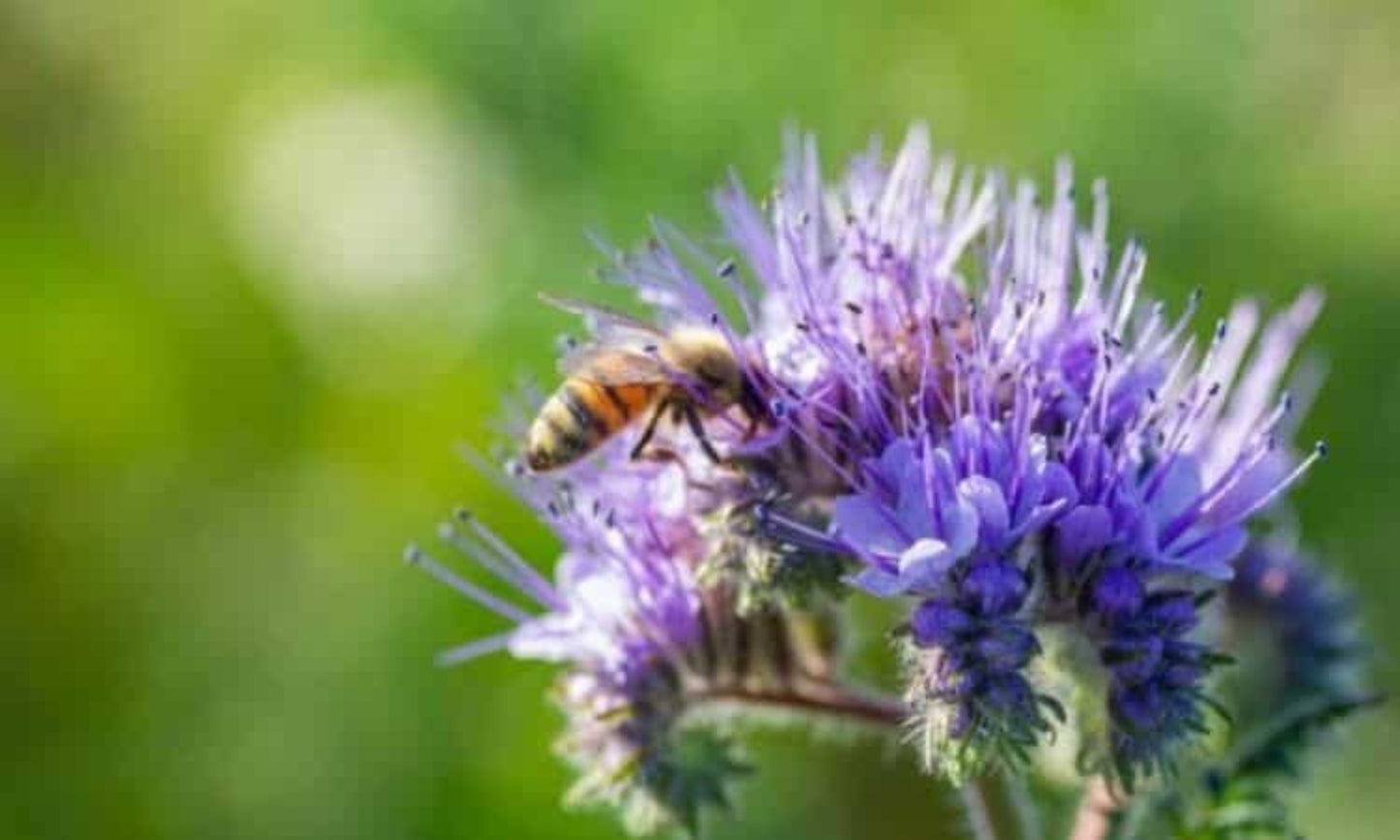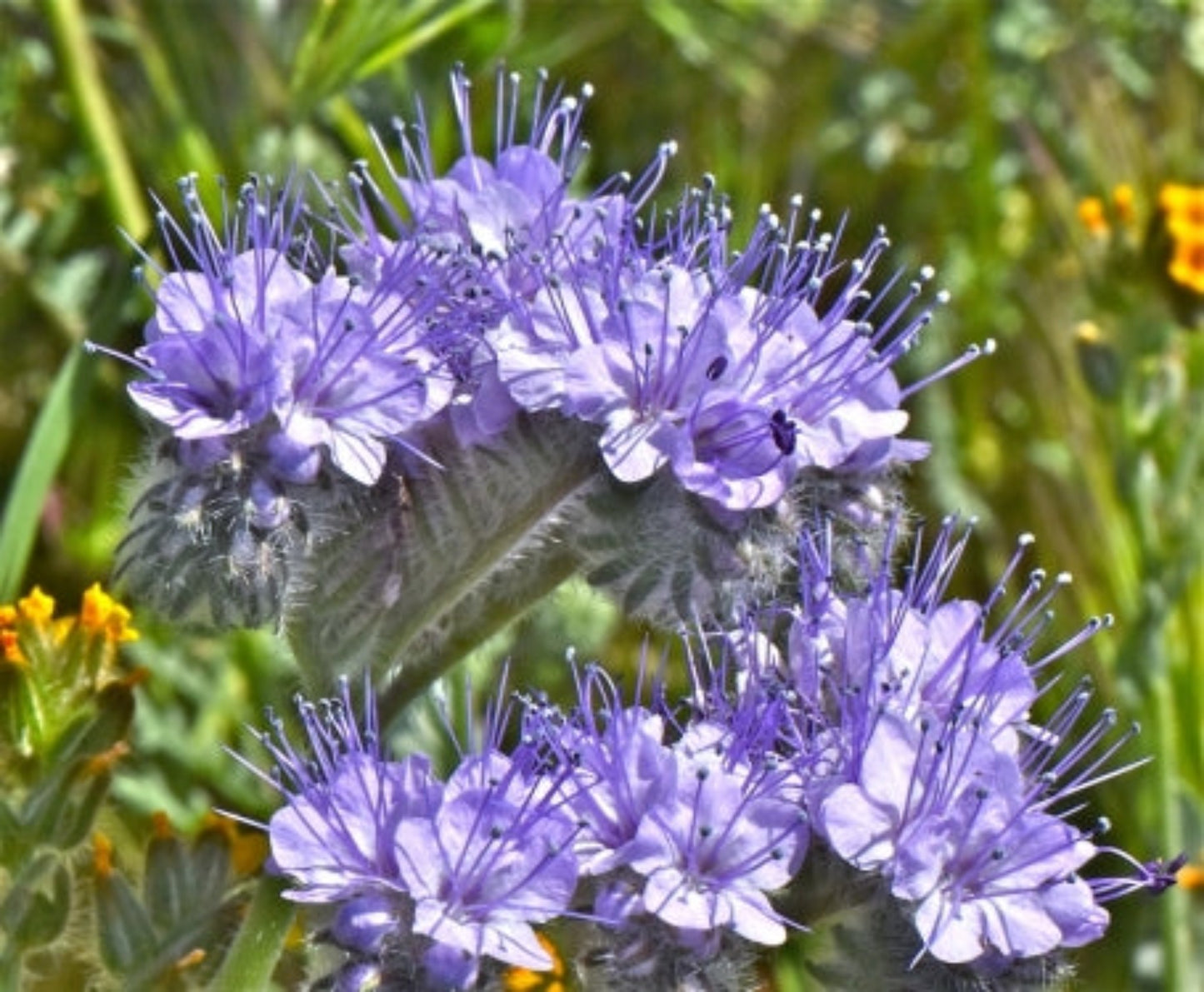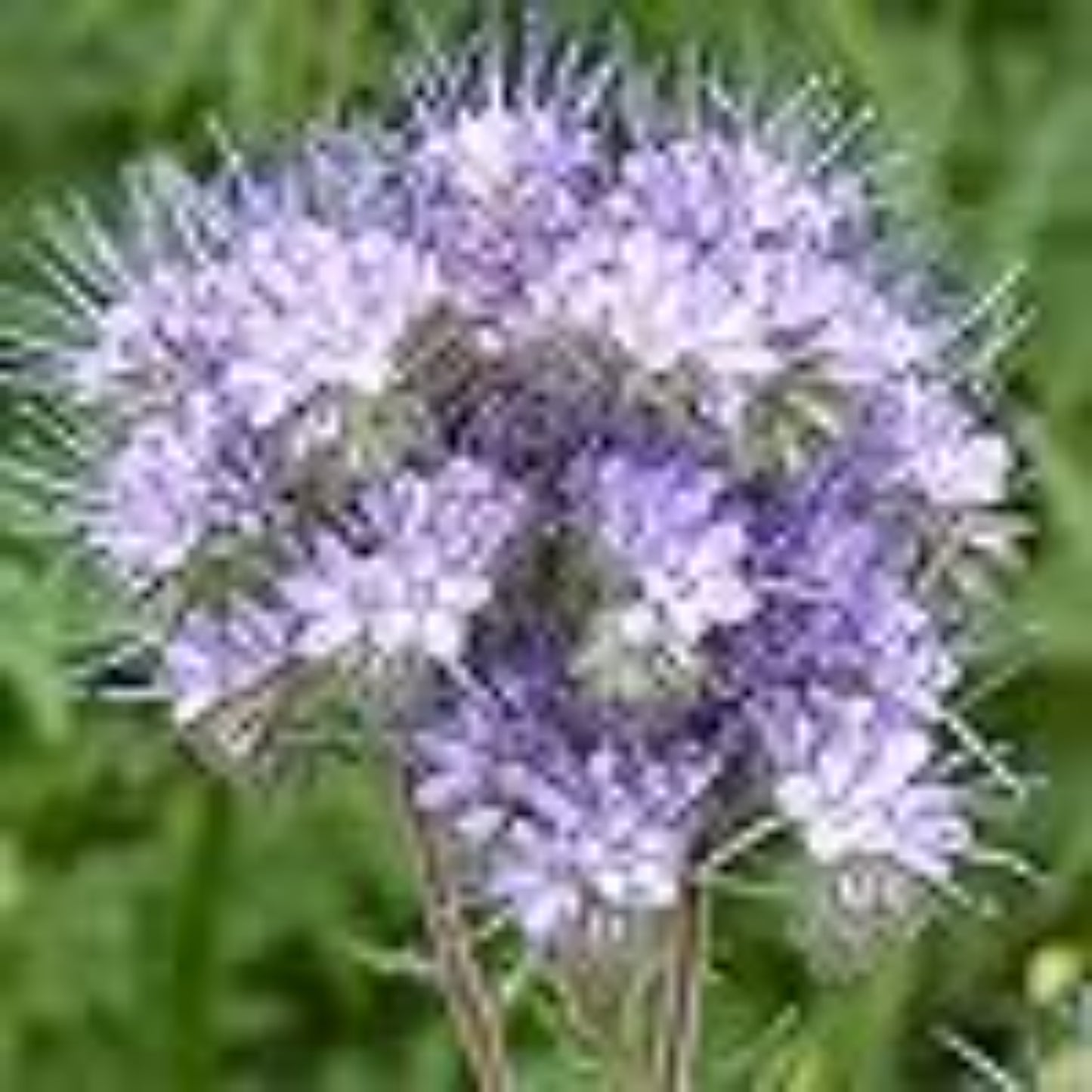JNB Seed
Lace Phacelia Flower Seeds
Lace Phacelia Flower Seeds
Couldn't load pickup availability
This perennial favorite among gardeners and bees alike casts a captivating sea of lavender hues, creating a visual and sensory feast in the garden. Its ability to thrive under the harsh conditions of intense sunlight, high temperatures, and minimal water makes it an ideal choice for arid environments. Growing this plant requires minimal effort, and it generously rewards with abundant seed production, ensuring its presence year after year.
Originating from the arid landscapes of California and Arizona, this indigenous bloom is celebrated by desert horticulturists for its durability and vibrant flowers. It serves multiple purposes, from enhancing garden aesthetics with its striking bloom to serving as an efficient ground cover that invites a host of beneficial pollinators. The name "Phacelia," derived from the Greek for "bundle," aptly describes its clustered growth form, while its specific epithet highlights the tansy-like appearance of its leaves, adding to its unique charm.
Esteemed as a prime source of nectar, this annual plant transforms gardens into a bustling hub of activity, drawing in bees and other pollinators with its fragrant lavender fields. Its resilience to environmental stressors such as drought and high temperatures, coupled with its undemanding nature, makes it a favored choice for gardeners looking to add a touch of wilderness to their landscapes. The plant's prolific seeding ensures a lasting legacy, with new sprouts eagerly emerging with the return of favorable conditions.
Belonging to the dry regions of the American Southwest, this wildflower has adapted to thrive in challenging conditions, earning the admiration of those who cultivate arid and semi-arid gardens. Its aesthetic appeal and practical benefits, including soil stabilization and attracting a diverse array of pollinating insects, contribute significantly to its ecological value. The genus "Phacelia," meaning "cluster," reflects its growth pattern, while the term "tansy-leaved" captures the essence of its foliage, reminiscent of the delicate tansy, further illustrating the plant's intricate relationship with its native habitat and its role in supporting local biodiversity.
Share
How To Grow
How To Grow
Sowing: Begin direct sowing in early spring, when the soil is workable, burying seeds about 1 cm below the surface as they require darkness for germination. Maintain a lightly moist soil until seeds sprout. For indoor starts, optimal germination occurs at temperatures between 13-15 degrees Celsius.
Growing: Water young plants until established and manage weeds. Mature plants are heat and drought-resistant, thriving in rocky or sandy soils as well as typical garden soil. Remove faded flowers unless seed production is desired. This plant is known to self-sow and attracts bees, hummingbirds, and butterflies.
Harvesting
Harvesting
For fresh bouquets, select stems when flowers just begin to open. Remove leaves that will be below the waterline, and place stems in water immediately.
Seed Saving
Seed Saving
Once the plant starts browning, Lacy Phacelia seeds will mature on the stem. Collect seeds when they turn brown, monitoring closely to avoid loss, as Lacy Phacelia seeds tend to drop easily. Store Phacelia Tanacetifolia seeds in a cool, dry location.
Extra Facts
Extra Facts
Season: Warm
USDA Zones: 1- 12
Light Requirement: Full Sun
Height: 46 cm
Environment: Late Spring, Early Summer
Soil Type: Well Drained and sandy soil
